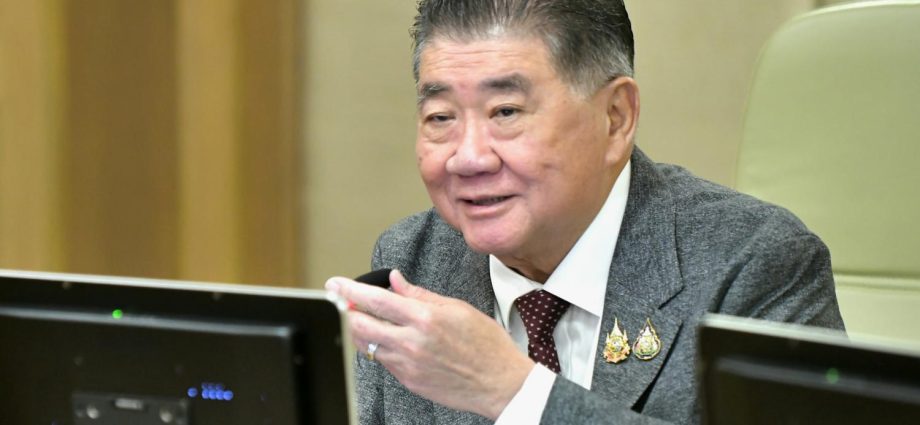Govt touts impact after only 3 months

The government has declared its “3 Cuts” strategy to disrupt call centre operations in Myanmar a success, three months after it was implemented.
Deputy Prime Minister Phumtham Wechayachai said on Thursday that the strategy adopted since Feb 5, including cutting electricity, fuel, and internet access to five locations in Myanmar’s border towns where many scam centres are located, led to a significant reduction in call centre activities along key border areas such as Mae Sai in Chiang Rai and Mae Sot in Tak.
The five locations are the Second Thai-Myanmar Friendship Bridge and Ban Huay Muang in Myawaddy, the Three Pagodas Bridge in Payathongzu, and Ban Mueang Daeng and the First Thai-Myanmar Friendship Bridge — both of which are in Tachileik, Shan State.
“These measures have disrupted the infrastructure sustaining these criminal networks,” he said. “The pressure has forced many of these operations to relocate or shut down entirely,” added Mr Phumtham, also the defence minister.
Authorities are preparing a final assessment of the policy’s impact in June, with Mr Phumtham indicating that while some displacement of scam operations to other regions has occurred, overall criminal activity has declined.
The government launched its “Seal, Stop, Save” campaign as part of this strategy, which also helps curb human trafficking and drug trafficking operations along the borders. Officials report that arrests and prosecutions have increased by around 60% compared to prior periods, he said.
However, Mr Phumtham acknowledged ongoing challenges in implementing the 3 Cuts strategy in other neighbouring countries. Negotiations with Cambodia and Laos regarding similar interventions remain difficult, as authorities must balance enforcement with preserving legitimate cross-border trade.
Some business operators along the border have raised concerns about the impact on exports. Mr Phumtham said a minority of traders were affected, particularly where unofficial crossing points — seen as security loopholes — were closed. Nonetheless, he stressed that formal trade routes remain open, and only controlled goods likely to support scam activities have been restricted.
Repatriating victims, particularly those from Africa, Latin America and Ethiopia, remains challenging due to coordination with their home countries, he said, adding that efforts are underway with NGOs to assist them.
Meanwhile, Foreign Affairs Minister Maris Sangiampongsa announced that the Ethiopian government had repatriated the first group of 282 call centre victims who had been working illegally in Myanmar, with the remaining 469 expected to return soon.
“This cooperation reflects growing international resolve to address the root causes of human trafficking and cybercrime,” Mr Maris said, following high-level discussions with Ethiopian Foreign Minister Gedion Timothewos during a recent Brics meeting in Brazil.
In March, one month after the implementation of power and internet signal cuts, cybercrime reports dropped 20% from 31,159 cases in January.

